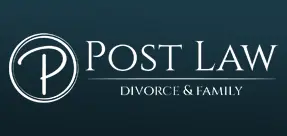Glastonbury Property Division Lawyer
Property division can be one of the thorniest issues that comes up during a divorce. Sometimes, spouses can come to a mutual agreement over these kinds of issues, but that may not always be the case. If you are going through a divorce and property division is an issue, it may be helpful to contact a Glastonbury property division lawyer.
Failing to consult with a skilled family attorney might result in an unfair distribution of assets or possibly more time in court. With dedicated legal assistance, though, you may have an easier time reaching a favorable outcome.
Property Distribution Laws
In Connecticut, courts generally accept any fair and reasonable agreement divorcing parties can make regarding property division. However, if the two parties cannot agree, the court would divide the marital estate in the divorce judgment.
Connecticut is an equitable distribution state, meaning the courts have jurisdiction over the marital property of separating spouses in the absence of a preexisting agreement between those spouses. However, “equitable” means the court would give each party what it believes is fair, not necessarily an equal division of assets. It may be wise to consult with a Glastonbury property distribution attorney regarding how a court might approach a particular set of assets.
Marital Property Versus Separate Property
It is important to note that courts only have jurisdiction to divide marital property during a divorce. Property acquired during the marriage is considered marital property, while property owned before the marriage or received as inheritances or gifts to one of the parties remain separate property.
If separate property remained in the control of only one spouse throughout the entire marriage, then it is considered separate and ineligible for court distribution. However, if separate property is comingled with marital property, it may therefore become marital property. A skilled property division lawyer in Glastonbury could provide further clarification.
Factors for Equitable Distribution
If spouses cannot come to an agreement about property division, the court may take a variety of factors under consideration to determine how assets can be divided equitably. According to Connecticut General Statutes Sec. 46b – 81, courts could consider the following factors:
- Age and health
- Length of marriage
- Occupation and source of income
- Cause of the dissolution of marriage
- Vocational skills
- Employability
- Estate
- Liabilities and needs, as well as the opportunity for future acquisition of assets and income
The court may also take the value of a homemaker’s services into account. In Connecticut, fault for a divorce—such as infidelity and/or adultery—may also be taken into account as a factor if it is applicable.
Talk to a Glastonbury Property Division Attorney Today
If you are in the midst of a divorce and cannot come to an agreement about how to divide property and assets, you may benefit from professional assistance. A Glastonbury property division lawyer could review your situation and help you pursue a beneficial outcome. Depending on the circumstances, local legal counsel may be able to act as a neutral third party and help you come to a positive resolution in your case, so call today to set up an initial consultation.
Copyright 2025 Post Law Divorce & Family. All rights reserved.
Disclaimer | Privacy Policy

